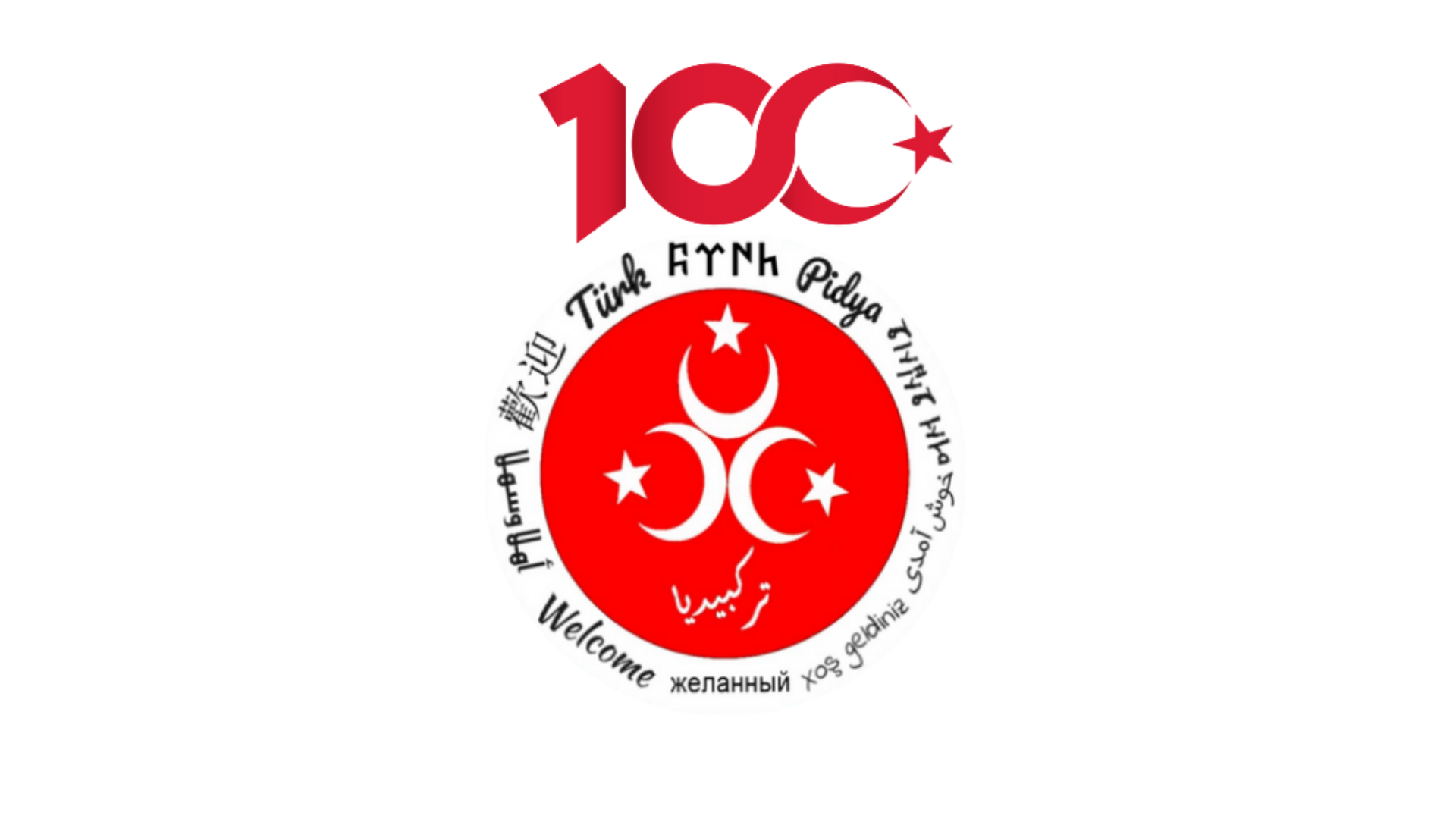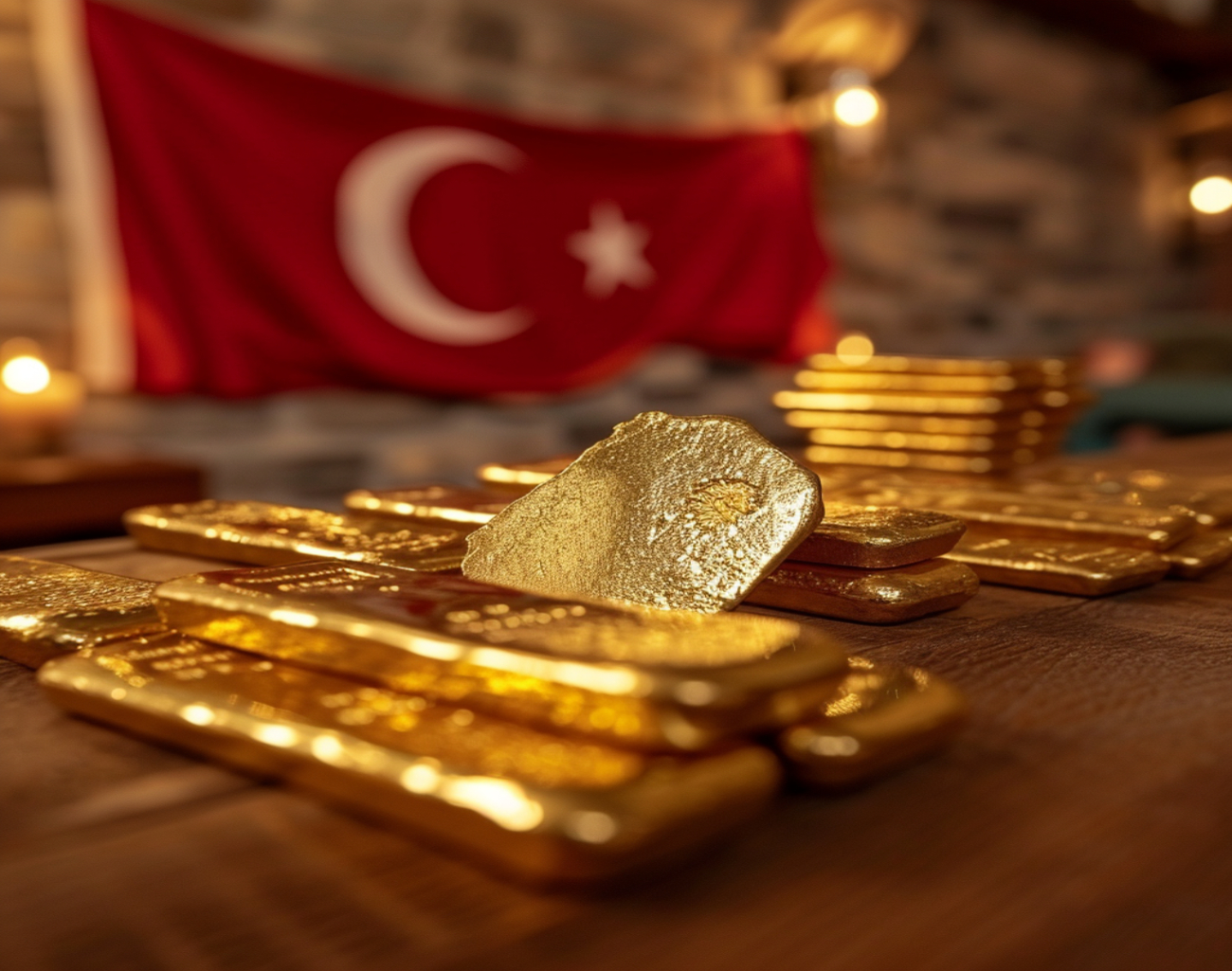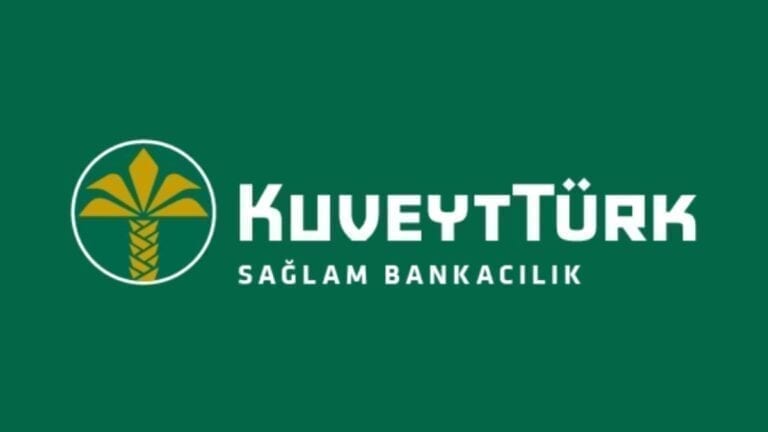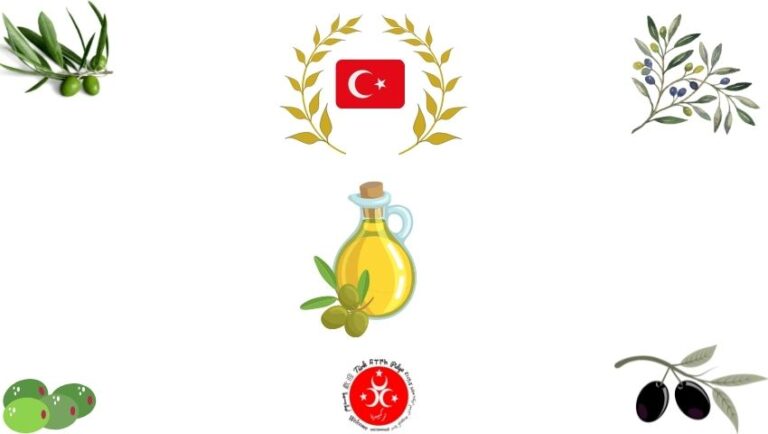Table of Contents
In Turkey, gold is one of the most important investment and saving tools, in addition to its great importance in Turkish culture, as it is exchanged by Turks at social events.
Gold in Turkey varies between jewelry, coins and bullions, the consumption of gold products is very high with a direct effect on the Turkish economy.
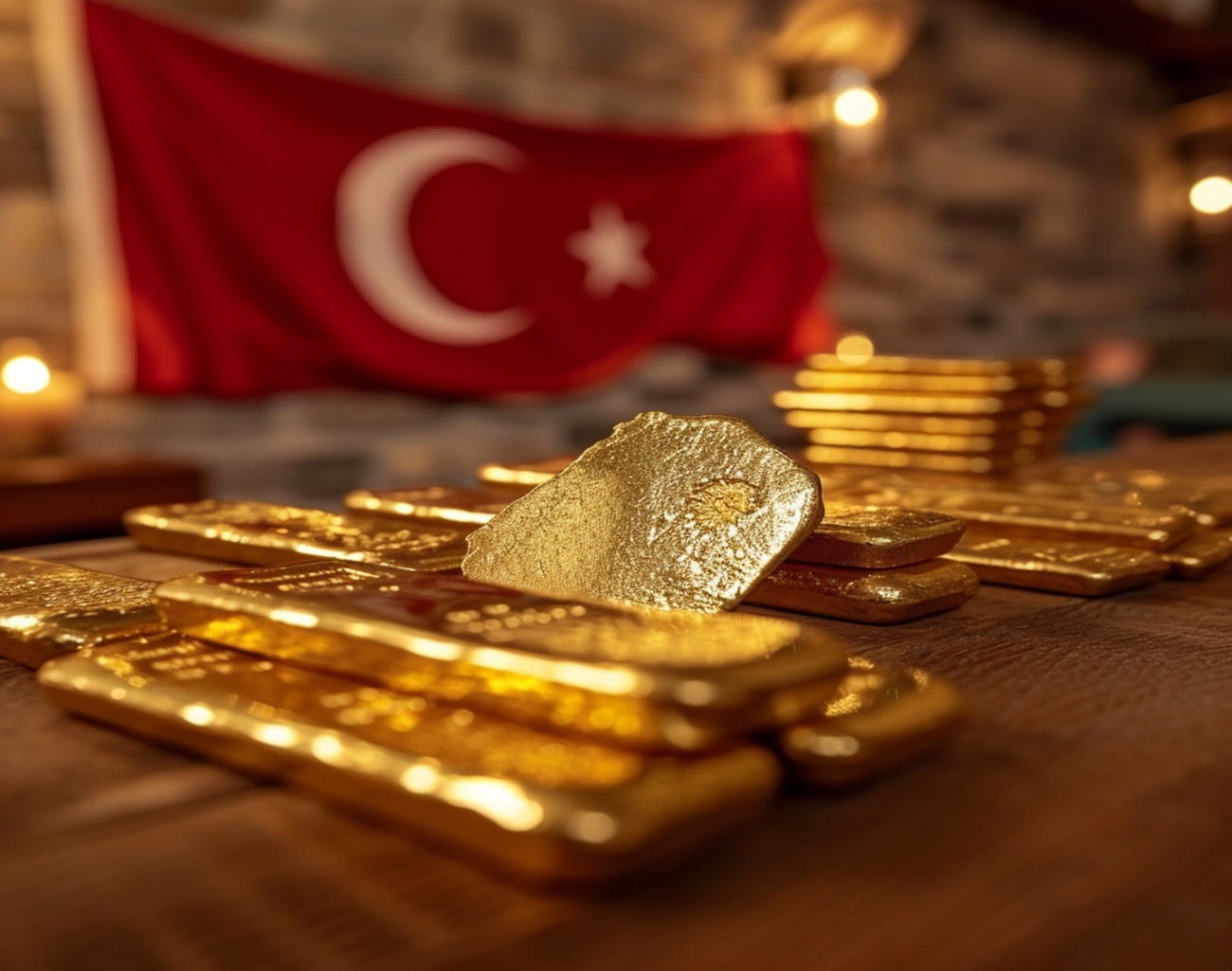
About Gold In Turkey
When I first arrived in Turkey, I quickly realized the deep cultural significance of gold here. It’s not just an accessory; it embodies both savings and tradition. Turks often gift gold coins during weddings and social celebrations, truly a meaningful practice.
I’ve come across some fascinating research that highlighted how Turks have amassed over 3,500 tons of gold. It’s astounding and really showcases the profound bond between the Turkish people and this precious metal. Whether for investment or adornment, gold is a staple here, available in four key purities: the 24 karat is the gold standard, literally, used for heavy investment like gold bars and also for electronic trading in banks. Then there’s the prevalent 22 karat gold, which you’ll see fashioned into exquisite jewelry and special coins, and not to forget, 18 and 14 karats for more intricate jewelry pieces.
Personally, I’ve grown to appreciate this aspect of Turkish culture; it’s a blend of pragmatic investment and treasured heritage. The trust in gold here mirrors the strong and resilient spirit of the Turkish people and their storied history, of which I am continuously learning and experiencing as an expat.
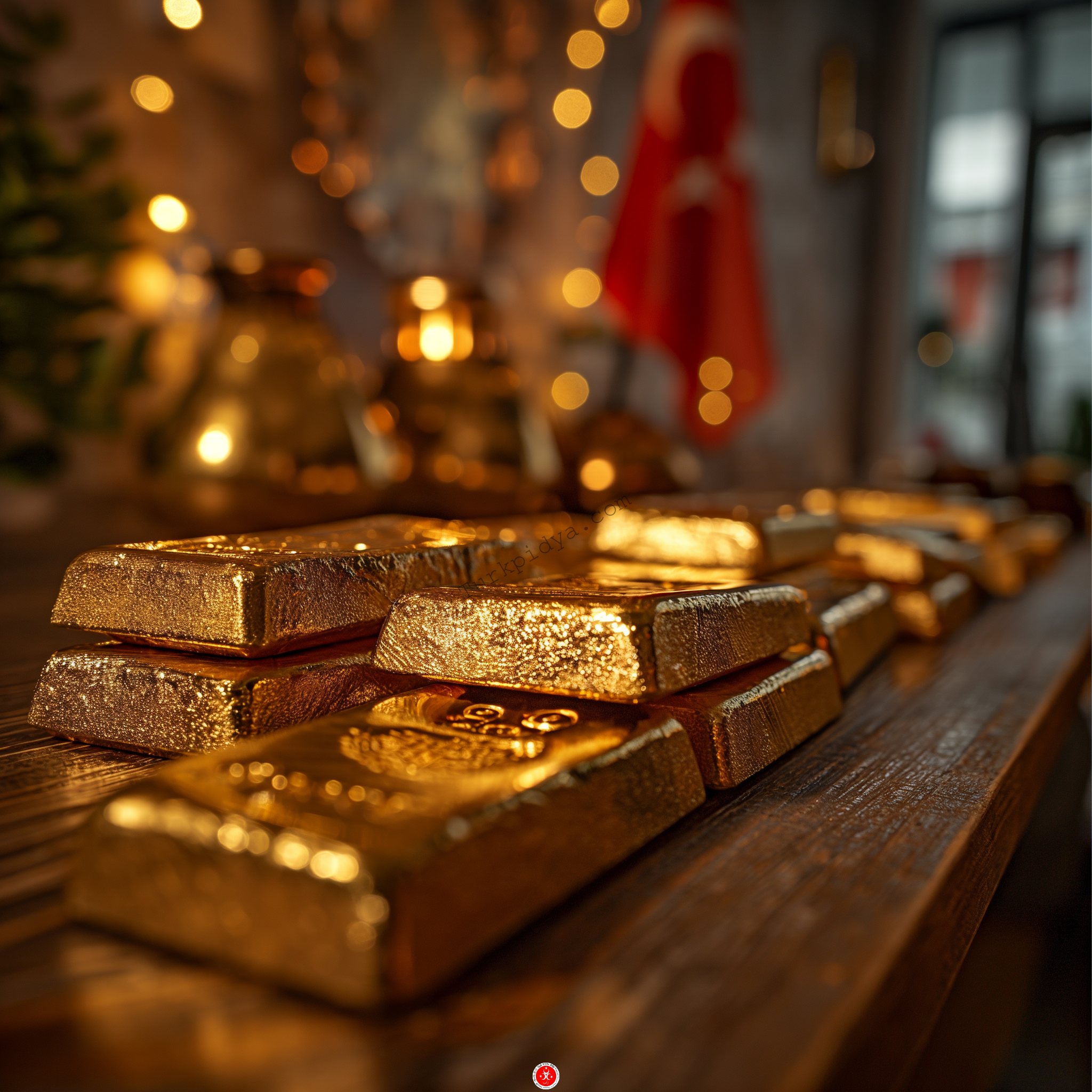
Gold Production in Turkey
According to MTA, Turkey’s first official gold production began in 2001 at the Ovacık gold mine in Izmir-Bergama. From humble beginnings producing just 1.4 tons per year, production has significantly increased thanks to new mines and expansions, surpassing 20 tons annually since 2011. Peak production was reached in 2013, around 34 tons, with a record-breaking 37 tons in 2019. From 2001 to 2019, Turkey’s total gold production amounted to approximately 342 tons.
It’s interesting to note that after 2012, in line with a global drop in metal prices, Turkish gold producers scaled back production and postponed expansion investments, anticipating better market conditions and higher gold prices. With the rise in gold prices, Turkey’s production potential is estimated to reach 100 tons/year. Currently, Turkey’s contribution to world gold production is around 1.05%. I find it impressive how the country has managed to steadily grow its gold mining sector, against economic tides, while planning for a brighter, golden future.
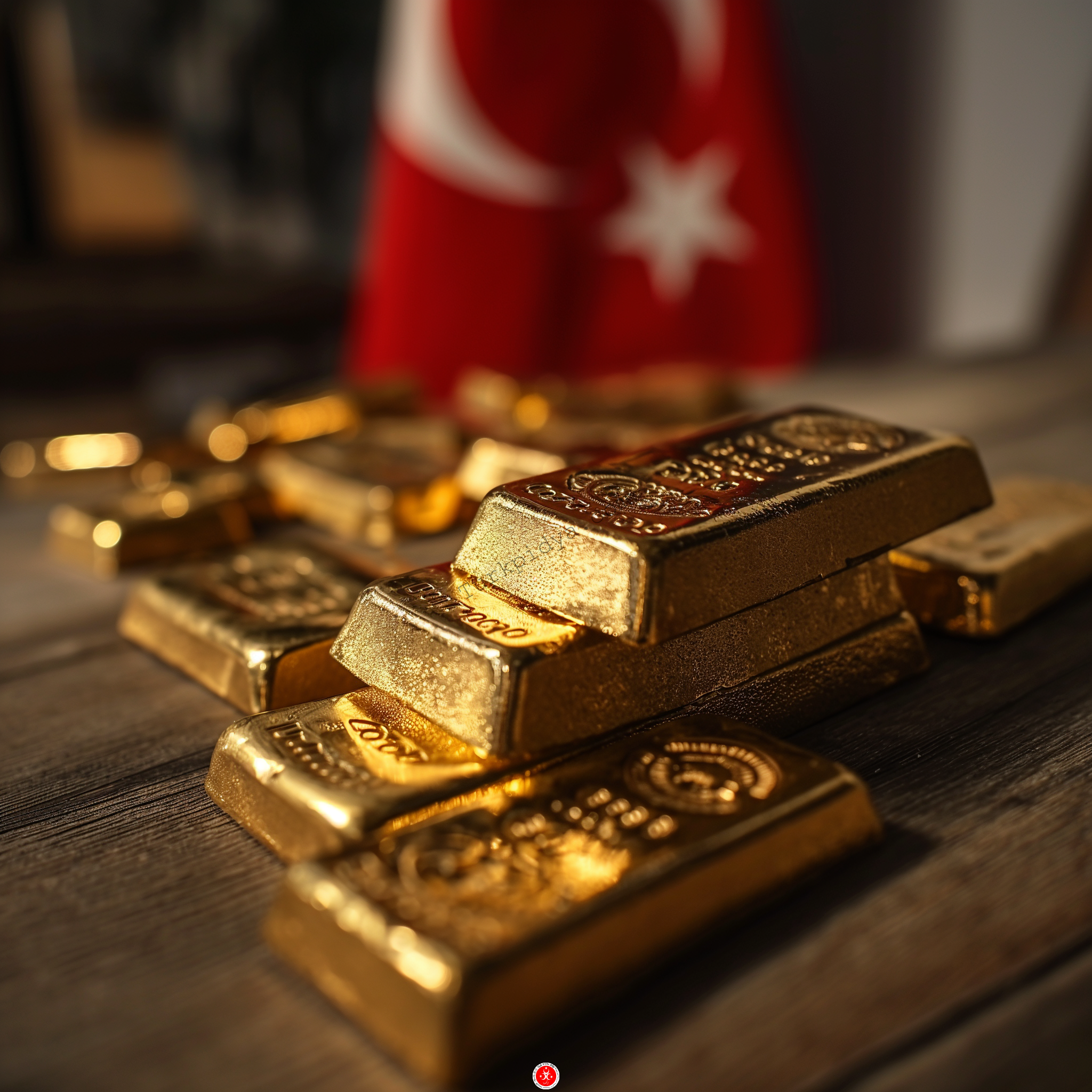
Turkish Gold Coins
Here in Turkey, 22 Karat gold coins play a vital role in societal customs, gifted during pivotal celebrations like weddings and circumcision ceremonies. These gold coins are broadly categorized into two types:
- Ornamental coins, known locally as ziynet altin, which are used primarily for adornment purposes.
- Republic coins, referred to as Cumhuriyet Altını, which bear significance as a token of the nation’s heritage.
This tradition of gifting gold is an elegant way to celebrate life’s milestones and showcases the intrinsic value placed on gold in Turkish society. It’s an enduring practice that I, as an expat, find deeply emblematic of Turkey’s rich culture.
Ornamental coins
The decorative ziynet altin coins feature an image of Atatürk on one side, symbolizing the nation’s revered founder. On the reverse, it proudly states “Republic of Turkey” alongside the coin’s date of issuance.
Each of these coins is adorned with stars and intricate motifs, carrying a distinct aesthetic charm. What’s unique is the addition of a handle at the top, reminiscent of a medal, which allows for these coins to be easily hung for display or presented as gifts during special occasions. As an expat, I’m continually captivated by these small but significant nods to the Turkish legacy — it’s an art form that weaves history and tradition into everyday life.
Quarter gold Turkish lira
The Turkish gold quarter, also affectionately known as “little gold” or “küçük altın”, is the most commonly gifted coin in social events here. Its popularity stems not just from its value but also from its status as a cultural token during significant rituals and celebrations.
This small denomination of the gold coin weighs between 1.754 to 1.6065 grams and is crafted from 22 Karat gold, with a compact diameter of just 18 mm.
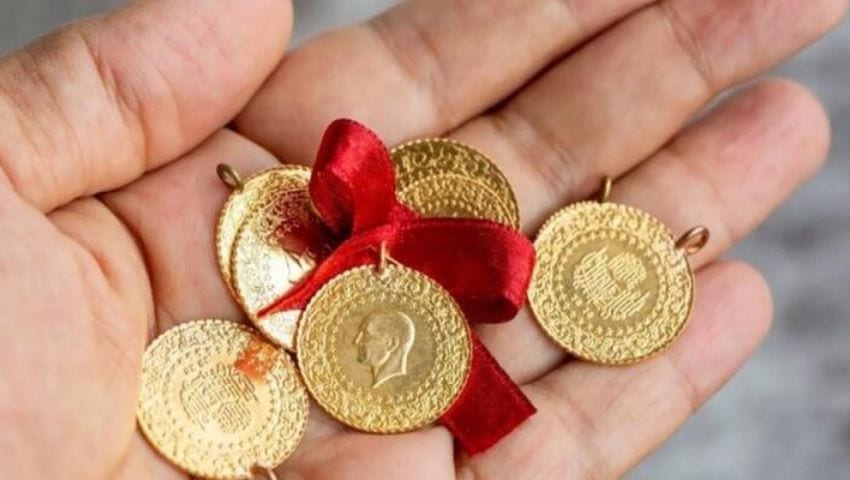
Half Turkish gold lira
The half gold lira is another well-regarded coin here, weighing 3.5 grams in total. It contains a substantial 3.21 grams of pure gold, with the remainder being copper or silver to bolster its strength. These coins are minted from 22 karat gold and measure 22 mm in diameter.
Their robust weight and precious content make them a valued gift for those extra special occasions. I’ve seen the pride in gift-givers’ eyes when presenting a golden half lira, a small token that holds much reverence and symbolizes generosity within Turkey’s cherished traditions.
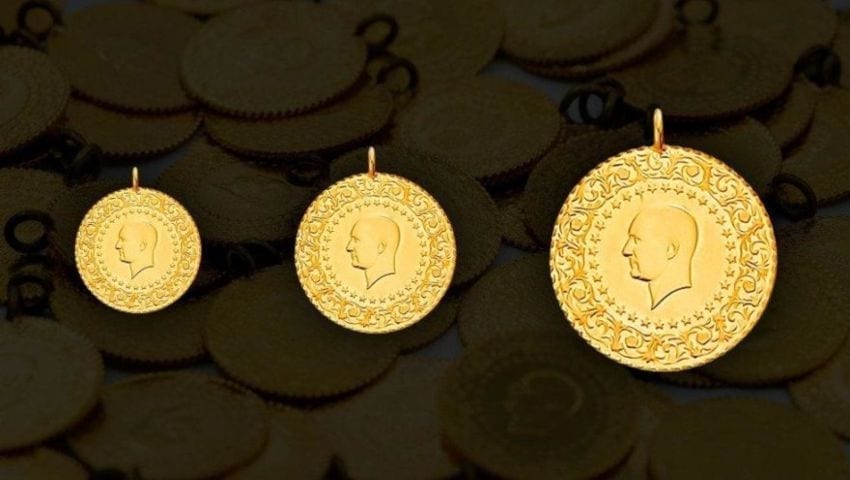
Golden lira
The 22 karat gold lira is quite the asset, weighing about 7 grams, with a substantial 6.42 grams being pure gold.
2.5 Gold liras
The 2.5 gold lira, known as Gremse, is a significant denomination in the realm of Turkish gold coins. Equivalent to 10 quarters or 5 halves of gold lira, its weight is a solid 14 grams.
Due to limited production and the challenges in purchasing it, the Gremse is priced higher than other coins and is considered rare. Many investors shy away from the 2.5 gold lira, making it the least traded type of Turkish gold coin in the market.
Despite its rarity, or perhaps because of it, the Gremse holds a special intrigue and is another fascinating aspect of Turkey’s rich gold culture.
Five golden liras
The five gold lira, often referred to by locals as “Beşi”, stands as a powerhouse in the array of Turkish gold coins, tipping the scales at a hefty 35 grams of 22 Karat gold. It’s looked upon as a safe haven by investors due to its substantial weight and value.
As one of the most prized gifts, the “Beşi” holds a special place in social events like weddings and circumcision ceremonies.
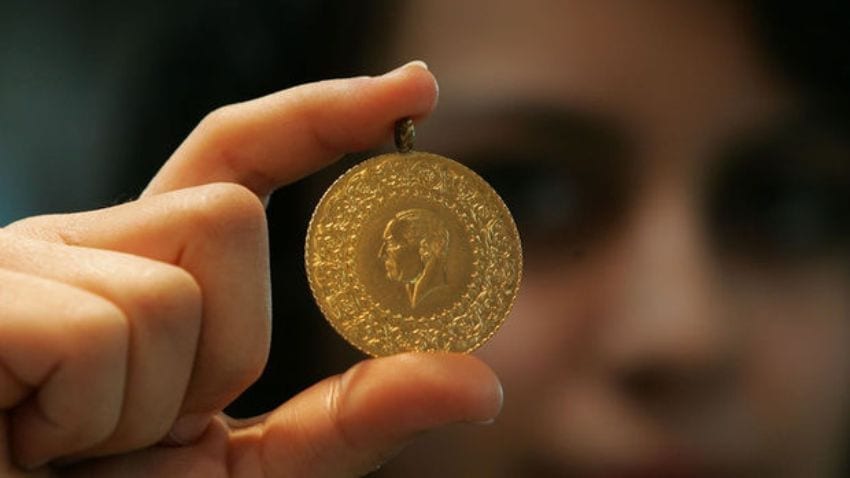
Republic gold
Republic gold coins are a distinct variety within Turkey’s gold offerings, diverging slightly from the usual ornamental gold coins. These coins come in 10 different sizes and weights across five denominations: five, two and a half, one, half, and a quarter.
What sets Republic gold apart are inscriptions that hold deep national significance. One side of the coin is engraved with “Republic of Turkey” and the date of the republic’s founding in 1923, while the other side bears the powerful motto “Hakimiyet Milletindir” – “Sovereignty Belongs to the Nation”, with “Ankara” stamped at the bottom.
Produced by the Mint of the Ministry of Finance, these coins not only carry monetary value but also convey historical and patriotic pride. The precise weight differences between Republic gold and ornamental gold reaffirm the coins’ dual purpose: as an investment and a memento of Turkey’s sovereignty and rich heritage.
| Type | Republic gold (weight in grams) | Ornamental gold (weight in grams) |
|---|---|---|
| Quarter | 1,804 | 1,754 |
| Half | 3,608 | 3,508 |
| One | 7,216 | 7,016 |
| Two and a half | 18,040 | 17,540 |
| Five | 36,080 | 35,080 |
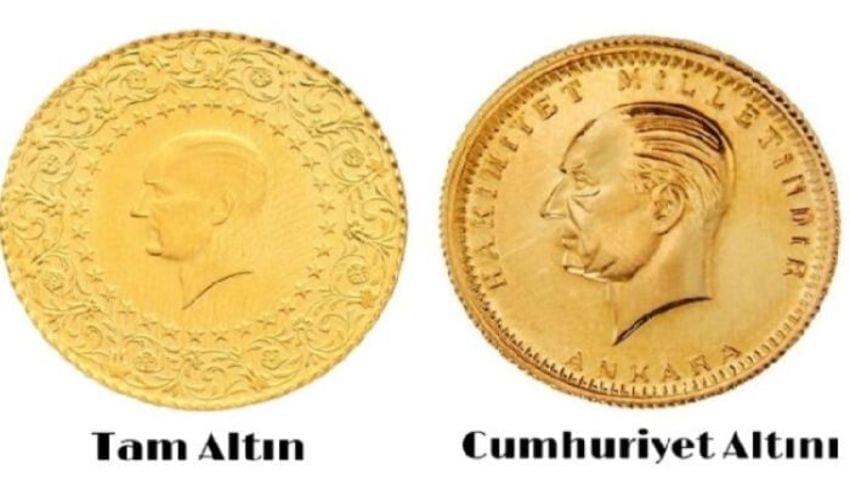
The Ottoman Golden Lira “Reşat Altın”
The Ottoman Golden Lira, widely known as “Rashad Altin”, is an historical gold coin named after Sultan Mehmet Rashad, who ascended to the throne in 1909. With a weight of 7.2 grams of 22 Karat gold, this coin is more than a simple currency; it’s a piece of Ottoman history.
These liras command a premium over regular Turkish gold liras, not just due to the slight difference in weight, but also because of their historical significance and rarity. While the Ottoman Rashad gold lira shares the 22 Karat purity with Republic gold coins, each speaks to a different era through their distinctive weight, diameter, and engravings. As an expat, holding an Ottoman Golden Lira is like touching a bygone era — it’s an extraordinary feeling to have such a tangible link to Turkey’s storied past.
In a nod to tradition and heritage, the Reşat Altın was reissued in 2022 as a special series from the mint.
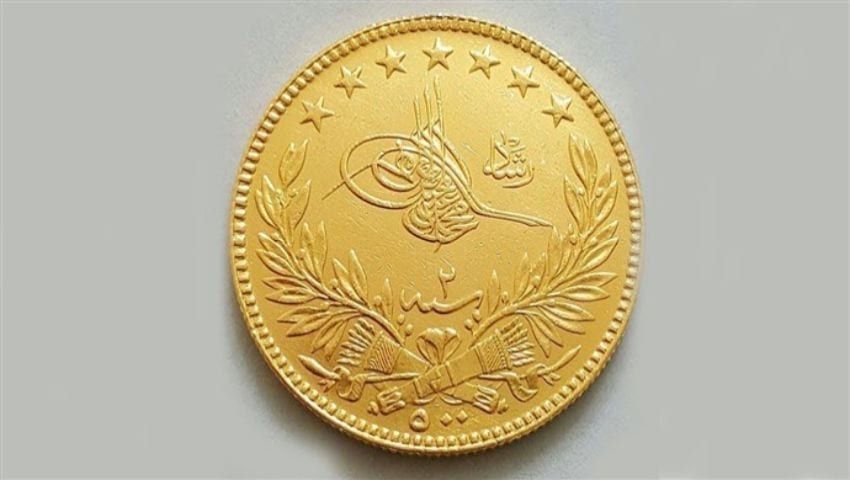
The price of gold in Turkey
Click on the gold price in Turkey to access the page that directly displays the price of gold live, in Turkish lira.
Turkey’s gold reserves
Turkey stands as one of the top nations globally in terms of gold reserves, with a staggering $44.282 billion worth, or 22,167 tons, as per the 2023 statistics. The Turkish Central Bank has been actively increasing its gold reserves, aiming for greater stability in its monetary holdings. This strategic move highlights the country’s foresight and positions it well in terms of fiscal security and economic sovereignty.
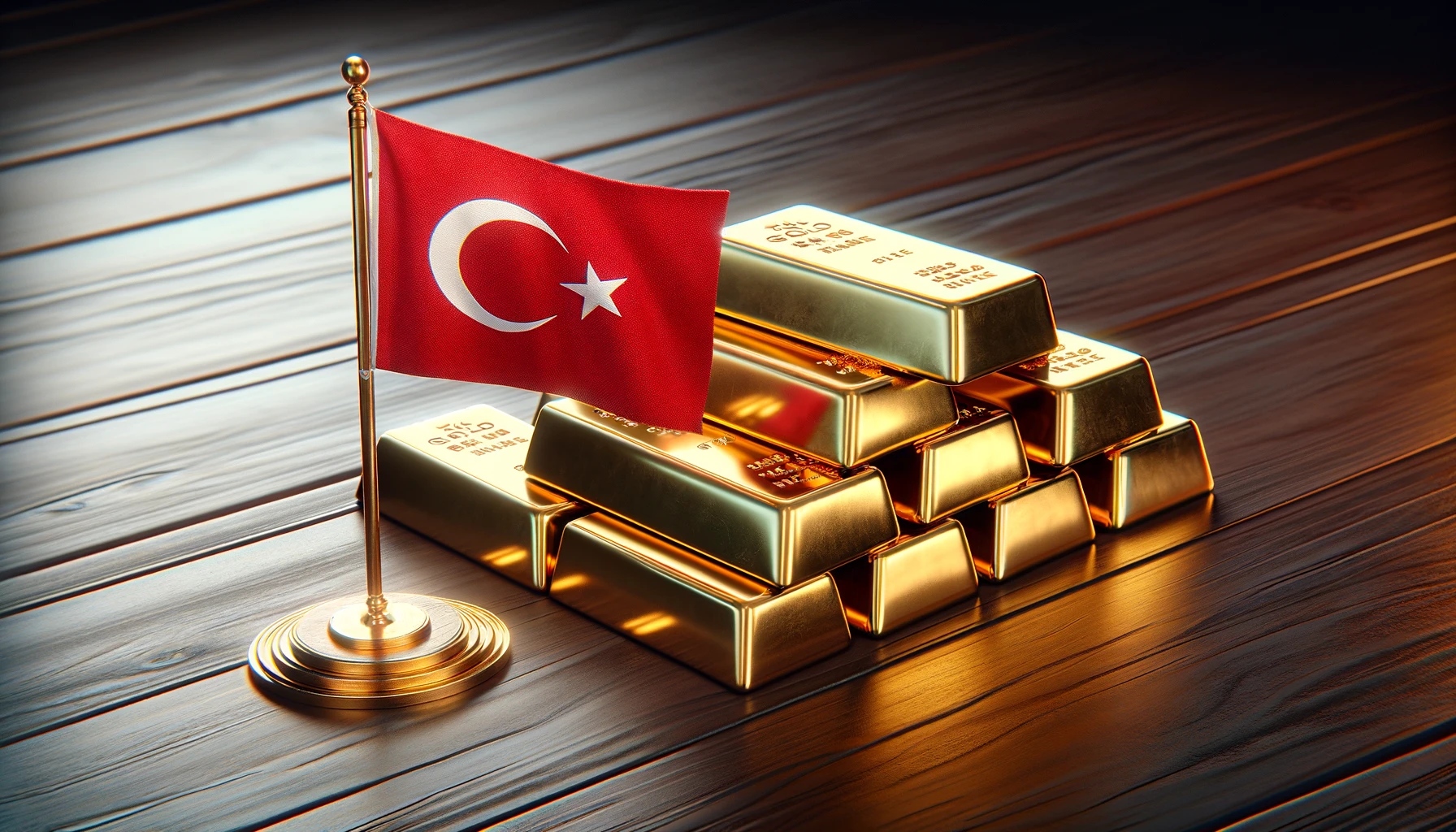
Gold refineries in Turkey
The following companies are considered one of the most important companies for the production and exploration of gold in Turkey:
Koza Altin
Koza Gold, an established Turkish company, plays a pivotal role in the country’s mining sector, focusing on the discovery and management of gold mines throughout Turkey. Currently, Koza Altın operates significant mines in regions like Izmir (Bergama Ovacik, Dikili – Kukralan, and Korakletepe), Gümüşhane (Maestra), Eskişehir (Kaymaz), and Kayseri.
The company’s vision includes ramping up production by tapping into mine reserves, particularly in the Aegean and Eastern Anatolian regions. This plan not only reflects Koza’s ambition but also contributes to the overall growth and sustainability of Turkey’s gold mining industry.
Istanbul Gold Refinery
Istanbul Gold Refinery, distinguished as the first official refinery in Turkey to gain recognition from the Ministry of Treasury, stands out as one of the country’s leading gold bar producers. The refinery’s hallmark, “İAR” — short for Istanbul Altın Rafinerisi — is proudly stamped on most of its bullion, signifying quality and trust in the industry. This acknowledgement not only highlights the refinery’s prestige but also cements its role in bolstering Turkey’s position in the global gold market.

Nadir Altin
Nadir Altın is a key player in the Turkish precious metals market, focusing on the production and trade of gold, silver, platinum, palladium, and rhodium. It’s renowned for its own-branded bullion — Nadir Metal and Nadir Gold — offering a variety of gold, silver, and platinum in grams as well as exclusive special collection items.
Nadir Altın stands as a formidable competitor to well-known entities like Istanbul Gold Refinery and Pyramid Altın, establishing itself as a dynamic force within the industry and providing customers with diverse investment options.Harem Altin
Harem Altın Company, founded in the eighties, has become one of the most prominent gold-selling brands in Turkey and across Europe. Marking a significant milestone in 2012, the company began producing gold bearing its own logo, which led to a considerable surge in its presence within the Turkish gold market. This strategic branding shift has bolstered Harem Altın’s reputation, solidifying its stance as a key industry leader in both local and European spheres.
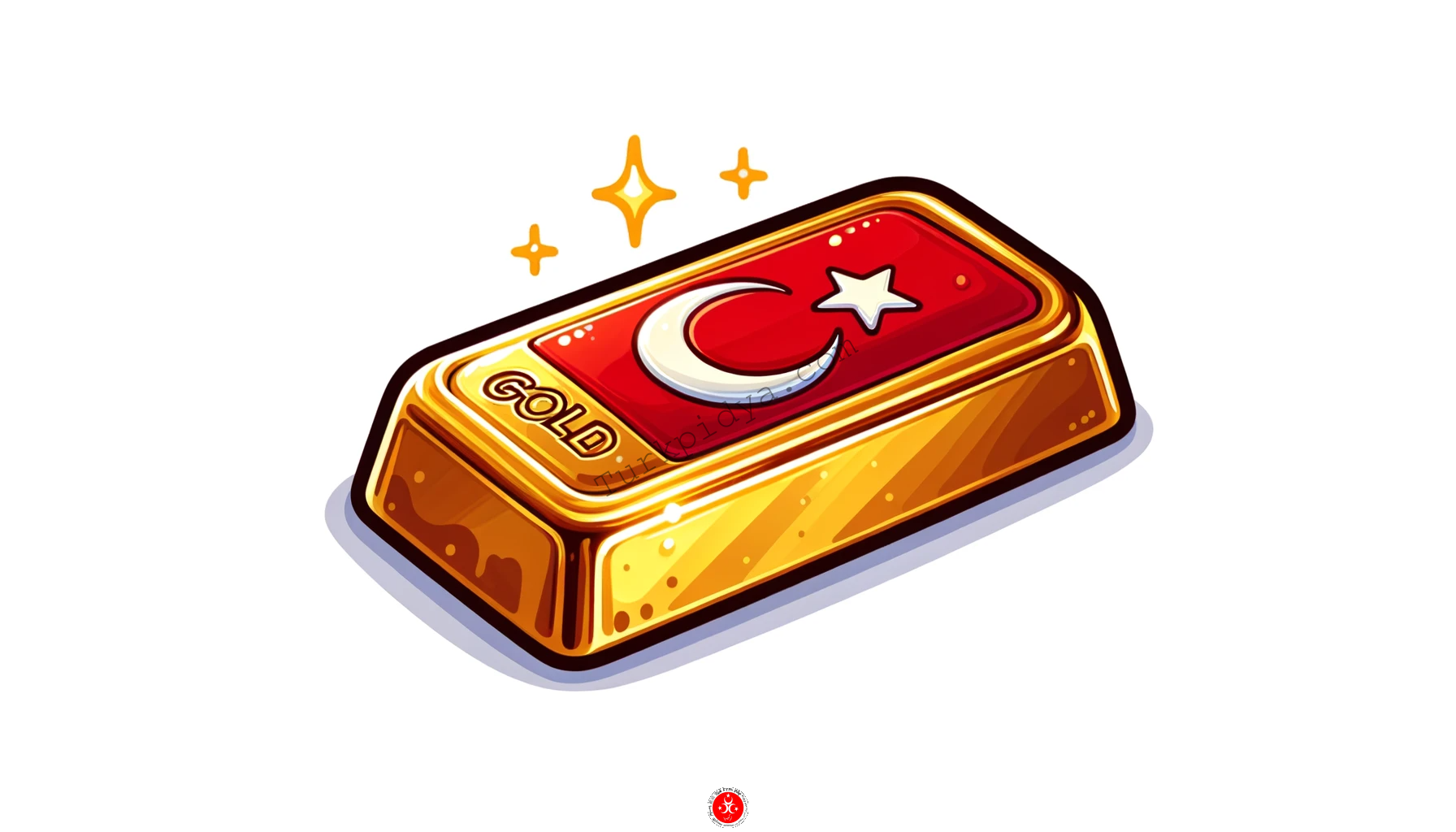
Where to buy gold in Turkey
Buying gold in Turkey is incredibly accessible with a variety of avenues to explore. You’ll find numerous “Kuyumcu” — that’s the Turkish word for jewelers — where you can browse an array of exquisite jewelry.
For those who prefer online shopping, Turkey offers convenient options like the GramAltin website, Nadir Gold website for purchases from Nader Refinery, and Harem Altin’s website for selections from Harem refinery. There’s also Yatirimim website, which caters to various gold investment needs.
Popular Turkish online shopping sites such as Trendyol and Hepsiburada also feature comprehensive ranges of gold products, from bars to coins.
Additionally, several Turkish banks allow you to buy gold electronically and add it straight to your bank account. A fine example is Kuwait Turk Bank, which takes it a step further by offering physical gold bars or coins. This makes gold investment in Turkey not just accessible but quite convenient, blending tradition with modern-day banking and online commerce.
Selling gold in Turkey
Selling gold in Turkey is straightforward. If you have gold to sell, simply head to a “Kuyumcu”, the local term for a jewelry store, and put your gold up for sale there.
Alternatively, you have the option of depositing your physical gold at a bank and selling it online via internet banking. The process is rapid and efficient — sell your gold and receive funds in Turkish lira or US dollars directly in your bank account. It’s this blend of conventional and modern methods that makes handling gold transactions in Turkey convenient for both residents and expats like myself.

Syrian gold in Turkey (21k gold in turkey)
In Turkey, Syrian gold stands out due to its 21 Karat purity, contrasting with the customary 22 Karat used in Turkish jewelry and coins. An appealing feature of Syrian gold is its affordability; it’s often around 5% cheaper than its Turkish equivalent.
You can also distinguish between the two based on color; Turkish gold boasts a lighter hue, whereas Syrian gold has a distinct reddish tint.
If you’re interested in buying or selling Syrian gold while in Turkey, you’ll want to visit Syrian jewelers, as this variety isn’t typically traded by Turkish dealers. It’s this diversity in gold offerings that enriches Turkey’s gold market, providing a range of options for consumers with different preferences and budgets.
What affects the price of gold in Turkey?
The price of gold in Turkey is influenced by several key factors, with the global price of gold and the exchange rate between the dollar and the Turkish lira being of paramount importance. These elements determine the fluctuating values of gold in the market, impacting how both locals and expats invest in this precious commodity. Being aware of these factors is crucial for anyone looking to engage with Turkey’s vibrant gold trade.
Is gold cheap In Turkey?
Gold has a universal price that aligns with the global market, but when considering purchasing power, it’s perceived as more expensive for the average Turkish citizen compared to their counterparts in the US or UK. This cost disparity highlights the economic dynamics at play and reflects how gold, while accessible, can be a significant investment relative to local incomes here in Turkey.
